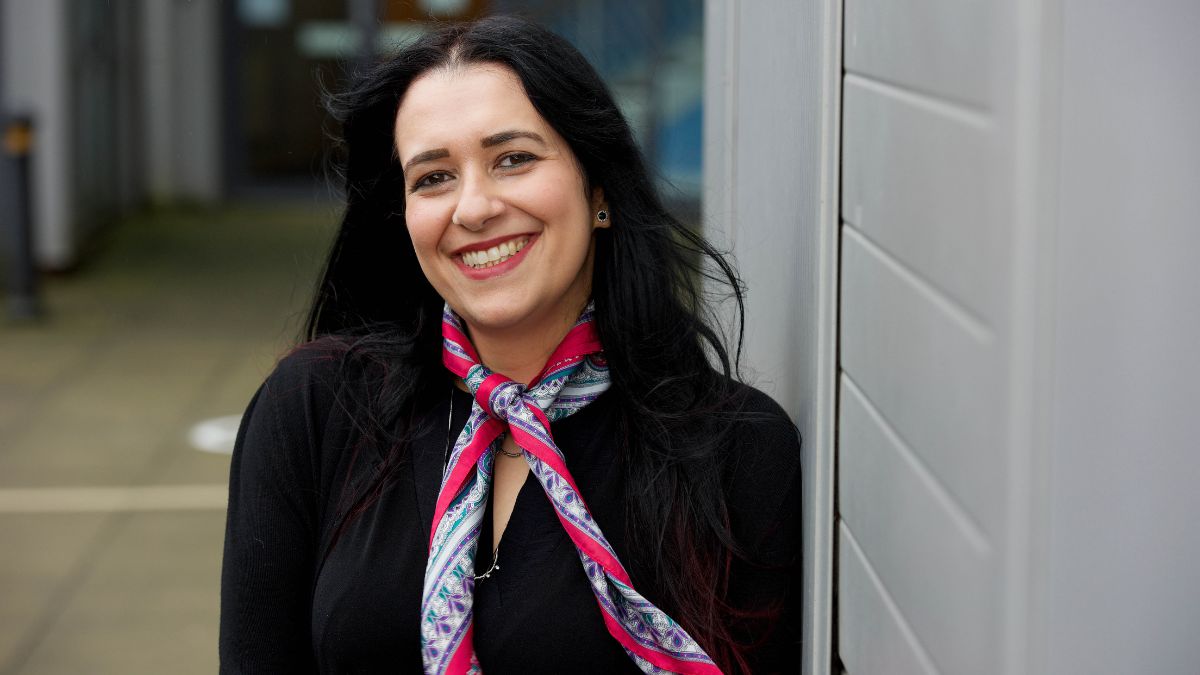
Every year on International Women's Day, I think even more about being a woman in computer science, a field predominantly populated by men. It's got me focused on the importance of good mentors, supportive allies, and role models who make a positive difference, encouraging critical thinking, different opinions and gender and ethnic diversity.
Mentorship stands as a cornerstone in this endeavour, and it is something I am very aware of in my role in the School of Computer Science. The importance of women supporting women in this field cannot be overstated. Female mentors provide more than just guidance on navigating technical challenges; they offer insights into overcoming systemic barriers, balancing professional and personal commitments and building confidence in a space where women are underrepresented. According to TechUK, while 47.1% of the total UK workforce is female, only 26% of the UK tech industry is occupied by women, with more technical roles such as security analysts and data engineers having an even wider gender gap. This is why mentor-mentee relationships are key to create a supportive network that empowers women to pursue their ambitions, fosters a sense of belonging and accelerates professional growth.
Equally crucial is the role of men as allies in this landscape. Male colleagues and computer science leaders have a pivotal role in advocating for gender diversity and inclusivity. Their support can manifest in various forms, from endorsing gender-equitable policies and practices to challenging discriminatory behaviours and amplifying the voices of their female peers. Men as allies, like women, can significantly influence workplace culture, helping to create an environment where everyone, regardless of gender, is valued and has equal opportunities to thrive. I’m lucky to work with colleagues who do this every day.
The power of visible role models in computer science cannot be underestimated. The adage "If you can see it, you can be it" resonates profoundly within the context of gender diversity in tech. The visibility of women in various roles within computer science - from researchers and developers to executives and entrepreneurs - sends a powerful message that women not only belong in this field but can also excel and lead. We are seeing positive change in that more girls now choose science, technology, engineering, and mathematics (STEM) subjects at A level and university. The British Computer Society (BCS) reports that in England, there has been a 92% increase in the number of female candidates taking the computing A level since 2019, signalling a move towards greater female representation in computer science and technology in the future. I’m looking forward to welcoming even more diverse cohorts of students in years to come, and seeing the difference they all can make.
A female role model in the technology sector whom I greatly admire is Dame Stephanie Shirley. Dame Stephanie's story is not just one of entrepreneurial success; it's a testament to her vision of gender equality in the workplace and her commitment to social causes. After retiring, she focused on philanthropy, donating most of her wealth to causes including autism research and IT projects in various charities. Her journey exemplifies how perseverance, innovative thinking and a commitment to social values can pave the way for ground breaking achievements in technology and beyond. Dame Stephanie Shirley serves as a powerful example of how women can lead, innovate and create lasting impact in the technology sector, making her a true inspiration for future generations.
This International Women's Day, these are the things I will be focusing on, and encouraging my colleagues to do the same. Let us renew our commitment to making computer science a more inclusive field through concerted efforts in mentorship, allyship and showcasing role models. Let's build robust support systems where women can find guidance, encouragement and inspiration. Let's champion the cause of men as allies, recognising their integral role in shaping a more equitable tech community. And let's elevate the visibility of female trailblazers in computer science, ensuring that every girl and woman who aspires to a career in tech sees a path forward and a place for herself. This is the future I’m committed to and excited about at Leeds Trinity.
Nicky Danino is the Head of School of Computer Science at Leeds Trinity University.